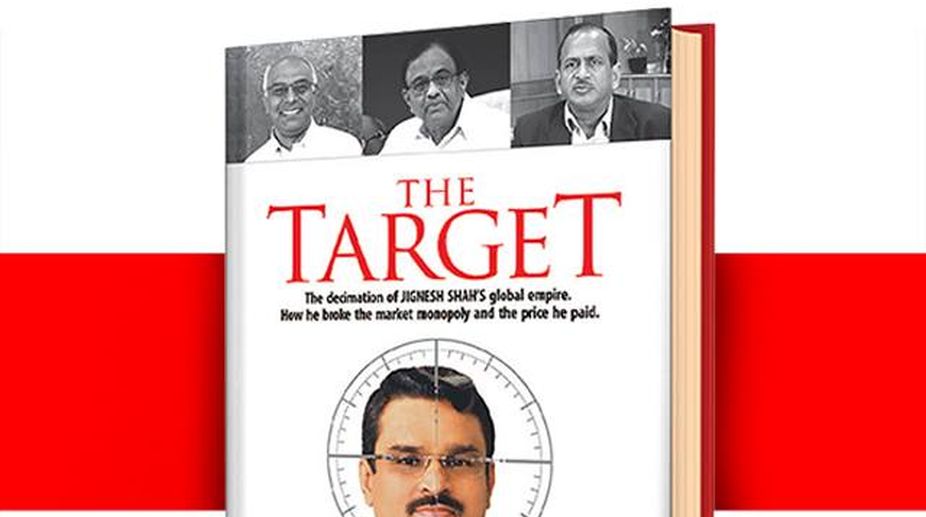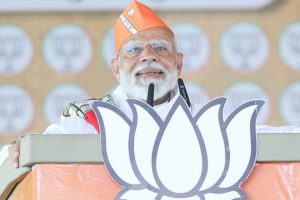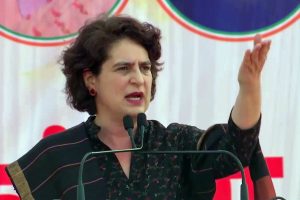He has been likened to the mythical Abhimanyu of the Mahabharata, who was trapped in a sinister plot by the Kauravas, and like John Galt, the protagonist of Ayn Rand’s Atlas Shrugged.
Jignesh Shah, chairman, Financial Technologies India Limited, like Galt, celebrated the idea of innovation. “Both fought against the system and paid a heavy personal price at the hands of the powerful for prioritising the interests of the masses,” says Shantanu Guha Ray in his latest book.
In The Target, he probes the motives of those who shunted Shah out of the exchange businesses and what it means for the politico-business climate of India. The Wharton-trained journalist exposes “The Rs 5,600 crore National Spot Exchange Limited payment crisis, fundamental lacunas in the system and vested interests that work to malign and punish any threat to a coterie of individuals.”
Shah, a “sterling exponent” of Prime Minister Narendra Modi’s “Make in India” programme, had built 10 world-class exchanges for commodities, equity, currency, bond and electricity in India, Singapore, Dubai and Africa in the span of a decade. The India Energy Exchange created by Shah rose to be the highest ranking energy exchange in India. It worked in tandem with states and union territories trading 14.41 billion units of electricity with a compound annual growth rate of 43 per cent in average yearly traded volume. The Economic Times dubbed it as “the Second Industrial Revolution” in India, writes Ray.
He says no innovator has been credited with such accomplishments across the world. These companies were original Intellectual Property-based innovations and did not involve any subsidy from the government or banks. “He was riding a crest from which very few could have toppled him by way of talent and performance. But he had taken on institutional forces like the National Stock Exchange including its political godfather, corporates with vested interests, rich and powerful brokers and FII fronts — known as the famed Malabar Hill Club. He did it by sheer performance to democratise the market prosperity to masses.”
The 233-page book, a result of two years of meticulous research by Ray, states that Shah was intent on breaking the market monopoly and passing the profits to the masses. The author, who in 2011 scooped the billion-dollar coal scam, writes, “Everyone was aware of the payment crisis and they also knew who precipitated it, and yet, they all pretended ignorance.”The crisis that could have been easily resolved has been left unresolved to date, he says.
Ray, who won the Wash award for his work on water-related issues and was also part of an award winning team that probed the dangers of tobacco and asbestos across the world, says it was surprising as whenever any crisis emerged in the case of NSE or the Bombay Stock Exchange, the authorities responded by extending relief measures to stem the crisis.
But when it came to NSEL all the authorities did was to embark upon a wide range of punitive measures. “More importantly, in the past, never, in any exchange related issues, were the parent company’s board or promoters punished or its management supplanted. Hence, the million-dollar question that surfaced was simple: Was the move solely meant to stifle Shah and ensure his company’s eventual demise?”
Interestingly, NSEL was established at the insistence of former prime minister Manmohan Singh in a bid to bring about uniform pricing for agricultural commodities in the spot markets across the country. Different investigative agencies like the EOW, Mumbai and the Enforcement Directorate established the entire money trail to the 24 defaulting brokers of NSEL.
A Bombay High Court appointed committee even found brokerages guilty of submitting false PAN card details of clients and trading without consent, writes Ray — winner of Laadli award for his findings into the scandal pertaining to cervical cancer human trials. No money trail was established to NSEL, FTIL or its promoters as observed by the High Court. A Special Leave Petition challenging the order was dismissed by the Supreme Court.
Recipient of the Ramnath Goenka award for excellence in journalism, Ray has not only published his findings but also boldly displayed mug shots of the prime actors, including former Union minister for finance, P Chidambaram.
“The book is a great read for all those who want to understand what went wrong with a success story called FTIL and the immense value of IP-based institutions of global scale and how they were crookedly demolished,” writes Suhel Seth, social commentator, columnist and author, in the foreword.
Ray has also penned Mahi, a biography of former Indian cricket captain MS Dhoni, and Fixed, a book on match fixing in cricket.











